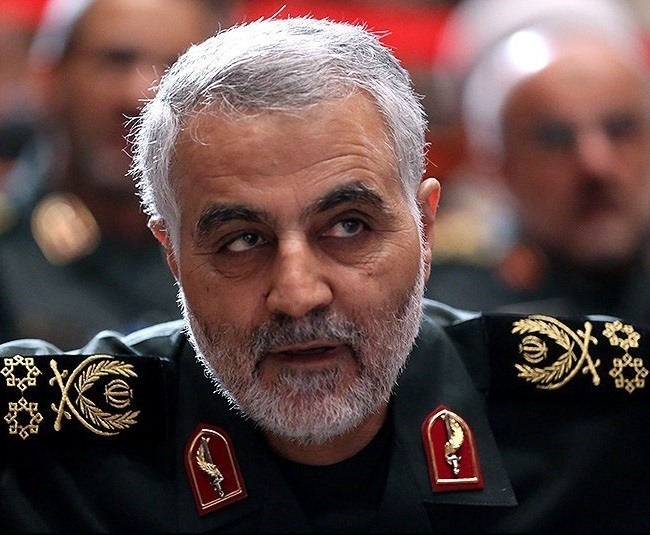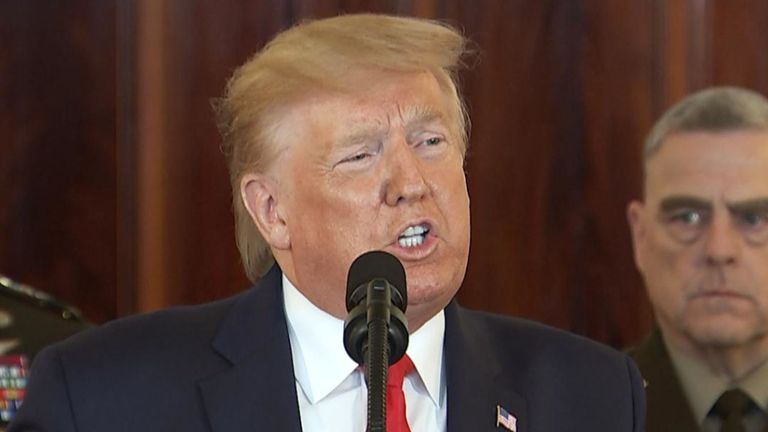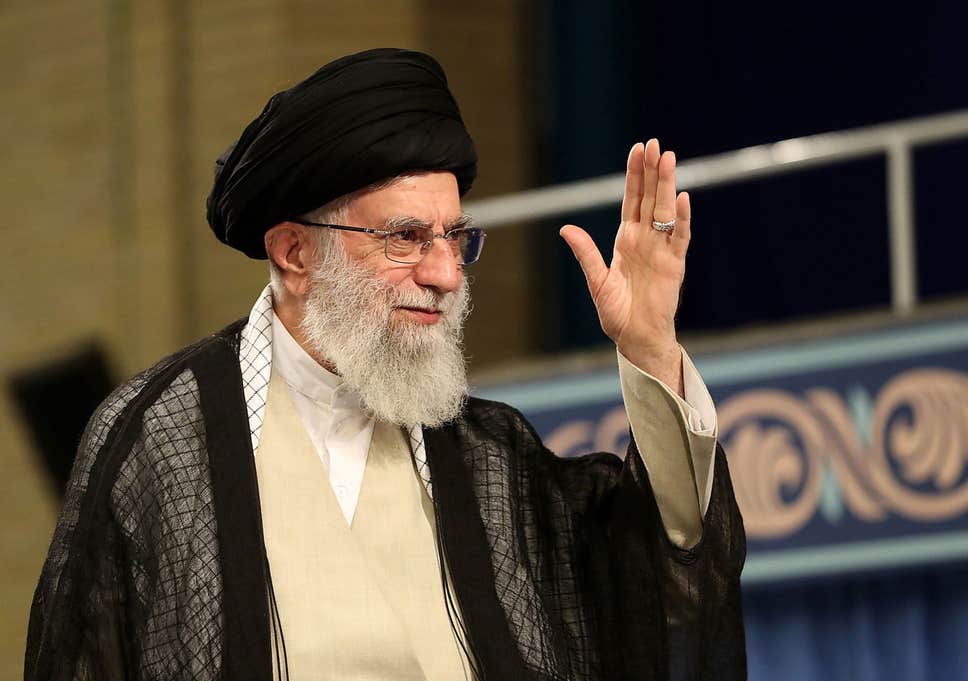RIO DE JANEIRO, BRAZIL – In the international arena, Brazil has only one side: the United States. Since assuming the presidency, Jair Bolsonaro has been promoting a knee-jerk alignment with the planet’s greatest economic and military power, commanded by Donald Trump, which causes concern even among Brazil’s top military.
On Wednesday, the president made a live broadcast on social media, merely to show that he was watching Trump’s speech on television.

While the US President used words to prevent an escalation in the conflict, which seemed inevitable after the White House’s decision to kill Iranian general Quasem Soleimani in Iraq, Bolsonaro said Brazil must repudiate terrorism, as determined by the Federal Constitution, and used the opportunity to criticize the government of Luiz Inácio Lula da Silva (PT) for drawing closer to Tehran and seeking to mediate a nuclear agreement in 2009.
This was yet one more move to cement the shift in Brazilian foreign policy implemented by his government. On Friday, January 3rd, Brazil’s unconditional support for the US military action was evidenced in a note from Itamaraty (Brazil’s Ministry of Foreign Relations), which accused Soleimani several times of being a terrorist. Moreover, Bolsonaro even endorsed American rhetoric when he said on Monday that Soleimani “was not a general”.
The statement in favor of the US suggests that the radical wing of the Bolsonaro government, formed by followers of the ultra-conservative ideologist Olavo de Carvalho, who sponsored Ernesto Araújo as foreign minister, is preponderant in the conduct of Brazilian foreign relations.
“To them, alignment with Trump is the main Brazilian interest at the moment. We are not talking about tangible gains, but rather the attempt to reconstruct the image of Brazil as associated with that of the United States,” explains Guilherme Casarões, professor of Political Science and International Relations at FGV.
In the note released by Itamaraty on the day of the attack, the government expressed its “support for the fight against the scourge of terrorism and reiterates that this fight requires the cooperation of the entire international community,” so that “Brazil is equally ready to take part in international efforts to help prevent an escalation of conflicts at this time”.

The document also states that “terrorism cannot be considered a problem restricted to the Middle East and developed countries, and Brazil cannot remain indifferent to this threat, which also affects South America”.
“In this sense, the Itamaraty note is coherent, since it endorses Trump’s military action and places Brazil as part of the so-called war on terror (recalling that, in other occasions, Brazil did not consider terrorism a strategic priority),” adds Casarões.
The document also reflects the military’s loss of influence in the conduct of foreign policy. If they seemed to play a moderating role early last year, when they acted to soften the Brazilian position in the Venezuelan crisis, they have now failed to convince Bolsonaro, behind the scenes, not to adopt a position favoring any of the sides in the conflict, according to UOL news portal.
“The resignation of General Santos Cruz [who was the chief minister of the Secretariat of Government of the Presidency of Brazil], to some extent, was a dividing line, marking the total preponderance of links to the West in foreign policy,” Casarões says.
The implications are deeper than they seem: for the expert, the alignment with US interests in the conflict with Iran also represents a break, already announced by Chancellor Ernesto Araújo, with the Brazilian diplomatic tradition, based on the principles of pacifism, multilateralism, and universalism.
He further points out that Brazil “has always refused to participate in international conflicts, has always defended strict respect for international law, and has always sought to maintain good relations with all the countries of the world”. Faced with this scenario, and also considering that Brazil’s diplomatic tradition “has always been a motive for international respect”, he believes “it is harmful to abandon a moderate stance in favor of the relationship with the United States”.
Call for diplomats
In the wake of the release of the Itamaraty note, the Government of Iran summoned Maria Cristina Lopes, in charge of the commercial mission of Brazil in Tehran, to provide explanations. According to the newspaper Folha de S. Paulo, Lopes – who attended the meeting because the head of the Brazilian diplomatic mission is on vacation – stated that the Itamaraty note was not a condemnation against Iran.

He further stressed that the countries’ relations are broad and cover other areas. “The use of the word terrorism in the Brazilian government’s statement was very ambiguous. It is not clear whether Itamaraty refers to specific groups or the Iranian government itself”.
“This leads to considerable bewilderment in Tehran because it is an extremely serious accusation against another state,” explains social scientist Adriana Erthal Abdenur, an expert in international relations and member of the United Nations Development Policy Committee. On Wednesday, Itamaraty canceled a meeting between Lopes and Iranian authorities to discuss cultural cooperation between the two countries, according to Folha.
The outcome of the Brazilian stance in its relations with Iran and other Middle Eastern countries is yet to be seen. From a trading point of view, Abdenur explains that Brazil “no longer depends on oil imports from the Middle East,” as it did during the geopolitical crises of the 1970s which resulted in an abrupt increase in the price of crude oil.
In addition, he points out that Brazil “has maintained a very pragmatic stance in building its economic relations with the countries of the region, including Iran. Although the current government’s stance has the potential to jeopardize trade relations, “which have great potential for growth,” she recalls that Bolsonaro has himself relaxed the Brazilian stance.
On Tuesday, December 7th, the representative assured that Brazil will maintain its trade relations with Iran, a substantial purchaser of corn, meat, and soybeans. “Furthermore, the Iranian government does not seem to take the statements of the Brazilian government very seriously, summarizing its reaction to the summoning of the person in charge of business to explain the positioning of Itamaraty,” she argues.
“I think that only a worsening of this situation and an even greater alignment with the US would place trade relations with Iran in check. Brazil is, for the time being, a low-profile supporting actor in this incipient conflict”, she opines.
Political and diplomatic consequences
The still-uncertain political and diplomatic consequences seem to cause more concern. Despite the rapprochement promoted by the Lula government, relations between Brazil and Iran have never been “extremely close”; while concurrently, they have always been marked by “a certain pragmatic cordiality,” Abdenur explains.

This record ends up being called into question when Bolsonaro questions whether the dead general was, in fact, a general. “He is offending a large part of the Iranian population, who saw him as the national military leader. This effect is further exacerbated because the attack has caused a reunification effect (within Iran),” says the expert.
The use of the term “terrorism” to refer to the US attack that killed Soleimani may also ultimately be unwelcome by other countries in the region, particularly those under Iran’s strong influence.
“They rarely act en bloc. There are several challenges of policy coordination and cooperation, as they are divided by geopolitical and geo-economic interests. But it’s good to remember that there are certain precedents, and they have already acted collectively to external provocations.
“A previous example was when Bolsonaro’s government announced that it would transfer the Brazilian embassy in Israel to Jerusalem. There were a number of summons and statements during that period”.
Abdenur also believes that, from a security and defense standpoint, automatic alignment with the US is not beneficial either. Quite the contrary. “The United States has not emerged victorious from a war since 1945, and even the supposed tactical victory that represented the overthrow of Saddam Hussein in 2003 has actually led to a period of greater instability and conflict in the Middle East,” she explains.
In this regard, her argument goes beyond Casarões’s argument regarding a break in Brazil’s diplomatic tradition: “By positioning itself in favor of the US attack, which violates international law, Brazil assumes a position that is contradictory and inconsistent with its history of advocating national sovereignty and, above all, the resolution of conflicts through multilateralism, via United Nations mechanisms,” she argues. “From my point of view, this alignment represents a negative turn”.
Source: El Pais

